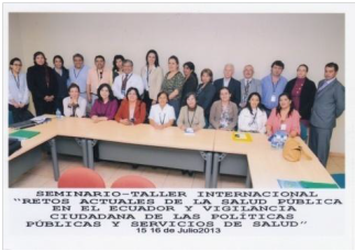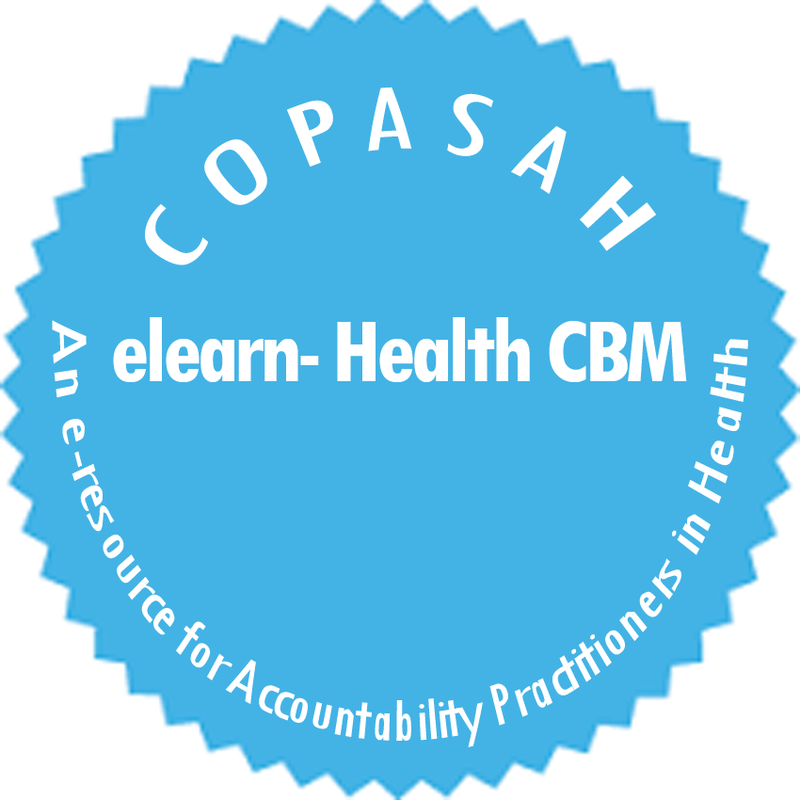
|
|
Regional COPASAH Workshop for Latin America
|
Walter Flores
|
|
Background
On July 15 and 16, steering committee members of COPASAH met in Quito, Ecuador, with members of the Ecuadorian Public Health Forum - a civil society organization of academicians, practitioners and activitists - to exchange analysis and experiences around the development of public policies in the region and to learn about COPASAH. The opportunity of holding this meeting in Ecuador was very important to understand what have been the changes in the country as the result of almost a decade of progressive public polices led by a leftist government. As an outsider, the news and perception one usually gets is that the public policies are effective in promoting equity and social inclusion. However, since I do have very close Ecuadoreans friends and during my travels to the country, I have got to learn about essential contradictions within a government that is internationally known to be democratic, radical, and progressive and that seeks to strengthen citizen’s participation. Below is a very brief account of such contradictions as I have been informed about by Ecuadorean colleagues. |
Since the current presidential elections, public social expenditure has dramatically increased. Public infrastructure, particularly access to roads has largely expanded. Moreover, a new political constitution has been enacted, which is the first one in the world that recognizes specific rights to the environment and Mother Nature. While on the one hand such important policies have been put in place, on the other, public polices that are rapidly expanding extractive industries - particularly mining have also been encouraged generating in strong opposition from communities and environmental activitists. In addition, there is evidence of a reduced tolerance from authorities towards voices and social movements opposing government policies.
Within the above context, over 25 representatives met for two days. The first day was devoted to analyze the current situation with the health sector public policies and issues around equity, inclusion and public policies. The conclusions of the first day were that although there is a progressive legal framework, the reality of the health system still reflects social exclusion and barriers towards universal access. The increase in the public budget has not translated in any significant expansion or strengthening of public health but rather on the acquisition of highly expensive medical technology, overpriced medicines and medical supplies. Corruption is present and sometimes even gives the impression of being on the rise.
During the second day, Ariel Frisancho presented the experience of Peru in relation to citizens‟ vigilance of maternal health, particularly those serving indigenous population. Walter Flores presented the experience of Guatemala working with community based indigenous organisations to demand accountability from authorities and actions to reduce discrimination and disrespect toward indigenous population seeking health care. Colleagues from Ecuador also presented their experience as community organisations overseeing the implementation of the healthy motherhood law in Ecuador.
In the final part of the second day, Ariel and Walter introduced COPASAH to participants and described the specific activities that will be implemented in the Latin American region for the period 2013-2014. One of the most relevant conclusions of the second day was the agreement that there is a strong case for active participation of citizens in demanding accountability from authorities, particularly when the legal framework recognizes explicit benefits and entitlements for the population. The workshop finalized with concrete actions that included a) the identification of additional organisations that have been working on citizens‟ vigilance of public polices b) the systematization of their experiences and c) active communication between the regional coordination of COPASAH and the Ecuadorean colleagues to promote and participate in the forth-coming COPASAH regional training workshop.
Within the above context, over 25 representatives met for two days. The first day was devoted to analyze the current situation with the health sector public policies and issues around equity, inclusion and public policies. The conclusions of the first day were that although there is a progressive legal framework, the reality of the health system still reflects social exclusion and barriers towards universal access. The increase in the public budget has not translated in any significant expansion or strengthening of public health but rather on the acquisition of highly expensive medical technology, overpriced medicines and medical supplies. Corruption is present and sometimes even gives the impression of being on the rise.
During the second day, Ariel Frisancho presented the experience of Peru in relation to citizens‟ vigilance of maternal health, particularly those serving indigenous population. Walter Flores presented the experience of Guatemala working with community based indigenous organisations to demand accountability from authorities and actions to reduce discrimination and disrespect toward indigenous population seeking health care. Colleagues from Ecuador also presented their experience as community organisations overseeing the implementation of the healthy motherhood law in Ecuador.
In the final part of the second day, Ariel and Walter introduced COPASAH to participants and described the specific activities that will be implemented in the Latin American region for the period 2013-2014. One of the most relevant conclusions of the second day was the agreement that there is a strong case for active participation of citizens in demanding accountability from authorities, particularly when the legal framework recognizes explicit benefits and entitlements for the population. The workshop finalized with concrete actions that included a) the identification of additional organisations that have been working on citizens‟ vigilance of public polices b) the systematization of their experiences and c) active communication between the regional coordination of COPASAH and the Ecuadorean colleagues to promote and participate in the forth-coming COPASAH regional training workshop.
|
|
ABOUT AUTHORS
Walter Flores is a Steering Committee member of COPASAH and also, Director of CEGSS, Guatemala.
To know about the work of CEGSS, please CLICK HERE
Walter Flores is a Steering Committee member of COPASAH and also, Director of CEGSS, Guatemala.
To know about the work of CEGSS, please CLICK HERE








